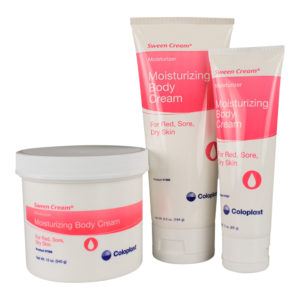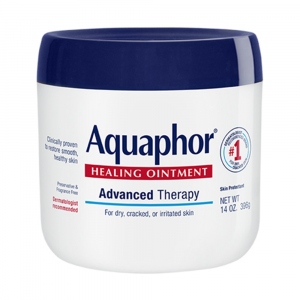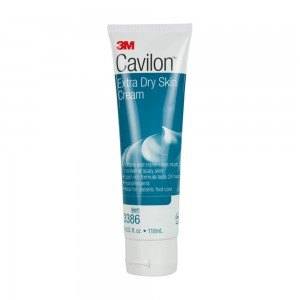FREE Shipping on Orders over $89 with Account – Create One Today!
- (844)-859-9400
- Get Help

Dry skin is a common ailment that can occur due to a lack of moisture, environmental temperature or a medical condition, among other causes. If you’re living with moderate-to-severe dry skin, learn more about how this condition develops and solutions for addressing and improving its symptoms, including moisturizers that may help.
Also known as xerosis or xeroderma, dry skin generally occurs when an area of the body doesn’t receive enough moisture. You may notice patches on your skin with a rough texture, as well as flakes, fissures or scales. You might also experience an itchy sensation or a feeling of tightness. The condition may emerge seasonally — for instance, due to dry or cold weather — or result from certain habits, like excessive UV exposure, frequent bathing, taking long, hot showers or using harsh, perfumed soaps and alcohol-based skin products or detergents.
Most of the time, dry skin feels like an annoyance that simply requires the right moisturizer. Yet, especially as you grow older or live with certain health conditions, chronic or severe dryness can mean the skin no longer functions sufficiently as a barrier against outside microorganisms and takes longer to repair itself.
At any age, moderate-to-severe dry skin is characterized by:
Multiple factors can contribute to dry skin, including:
Although often perceived as an inconvenience, persistent dry skin can cause bacteria to enter through cracks and fissures and affect how wounds heal, including stalling or contributing to infections.
Moisturizing is the first line of defense when you’re dealing with dry skin. Moisturizers help preserve the skin’s barrier function and lessen any itchiness or tightness you’re feeling. It’s advisable to apply a moisturizer right after bathing and, if you plan to head outside, add sunblock with SPF 30 or higher on top.
Not all skin moisturizers are identical, and some may even irritate your condition further. Look for solutions that use a combination of dimethicone, glycerin, hyaluronic acid, lactic acid, jojoba oil, lanolin, mineral oil, shea butter or petrolatum. Also look for formulas that are free of alcohol, retinols, added fragrances and alpha-hydroxy acid.
Along with this tip:
Consider the following solutions to help replenish your skin’s moisture:

Sween Cream doesn’t just alleviate irritation — it helps counteract the effects of transepidermal water loss (TEWL) with a vitamin A and D-enhanced non-occlusive formula designed for full-body use. Application works with a patient’s wound care plan and won’t interfere with bandage or tape hold.

Aquaphor has developed a multipurpose ointment for addressing a range of skin conditions, from dryness to chapped lips and minor burns. A petrolatum base enhanced with panthenol and glycerin creates a protective barrier while soothing and moisturizing the skin underneath.

Cavilon Cream uses a lipid-based formula to deliver moisture for up to 24 hours. This non-greasy, pH-balanced solution helps calm red, rough and scaly patches.
Remedy Repair Cream utilizes a soothing, paraben-free formula made of 5% dimethicone and botanical ingredients like jojoba, manuka honey and natural oils to help replenish the skin’s moisture.
Sources:
https://www.mayoclinic.org/diseases-conditions/dry-skin/diagnosis-treatment/drc-20353891
https://www.aad.org/public/everyday-care/skin-care-basics/dry/dermatologists-tips-relieve-dry-skin
https://www.webmd.com/skin-problems-and-treatments/dry-skin
https://www.medicalnewstoday.com/articles/dry-skin
